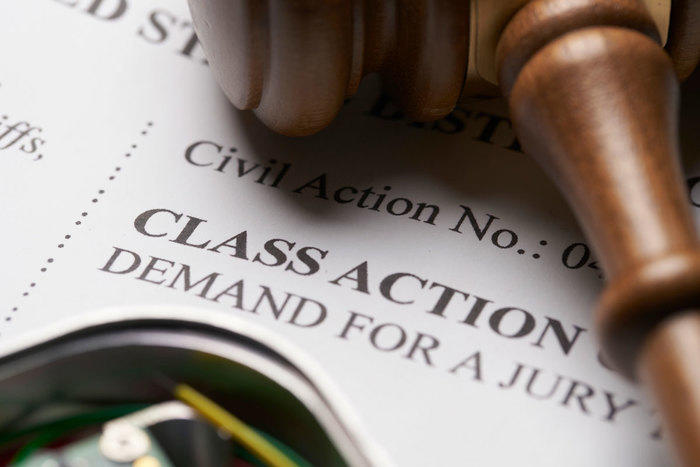Archer-Daniels-Midland Class Action Lawsuit: Your Legal Roadmap
Debunking Course Action Legal Actions: A Closer Take A Look At Legal Procedures
Course action claims can be intimidating and complex, typically shrouded in a veil of enigma for those unfamiliar with the legal process entailed. From understanding the criteria for course action qualification to the duty of course reps, and from the procedure of class accreditation to the resolution of these legal actions, we will certainly unwind the complexities and lost light on the inner workings of this legal mechanism.
Comprehending Course Action Claims
Comprehending Course Action Claim calls for a comprehensive assessment of the lawful process associated with collective lawsuits. Class action suits are a kind of lawful action where a group of individuals with comparable claims or grievances collaborate to launch a lawsuit versus a common accused. This type of litigation permits people with restricted sources to jointly look for justice, as it combines the strength of several specific cases into a solitary lawsuit.
The process begins with the recognition of a lead plaintiff or class agent that submits the preliminary problem on behalf of the whole class. The court then determines whether the instance fulfills the demands for class accreditation, that include commonality, numerosity, typicality, and adequacy of depiction. If certified, the court informs prospective course participants, providing an opportunity to opt-out if they want to pursue their insurance claims separately.
Once the class is accredited, the lawsuits proceeds with different phases, including discovery, movement method, and, if required, trial. The outcome of the claim can result in a judgment or a negotiation, which is binding on all course members unless they select to opt-out. Course activity suits can encompass a large range of lawful issues, such as customer protection, safety and securities fraud, employment discrimination, and ecological injury.
Recognizing the nuances of class action legal actions is important for both accuseds and plaintiffs included in collective lawsuits. It calls for a complete understanding of the lawful requirements for accreditation, the rights and commitments of course participants, and the possible benefits and threats related to defending or pursuing against course action claims.
Identifying Course Activity Eligibility
To determine whether a legal activity qualifies as a class activity lawsuit, specific requirements must be fulfilled. These standards are made to make certain that the instance can effectively stand for the interests of a big group of people who have actually experienced similar harm or have actually been impacted by the very same concern. The key factor in determining class activity eligibility is the visibility of a common concern or problem that impacts all possible course members.
To start with, a course action claim calls for numerosity, which suggests there need to be a significant number of potential class participants included. This makes certain that a class action is a reliable way to resolve the insurance claims of a big group of individuals, instead than having everyone file an individual claim.
Second of all, there must be commonality among the claims of the prospective course participants. This implies that there need to be a common concern of law or truth that is central to the situation. If each potential class participant's case is unconnected and one-of-a-kind to the others, a course activity may not be proper.

The Function of Class Representatives
Class representatives play a vital function in course activity claims by representing the passions of the entire class. These individuals are picked from within the class to function as the general public face of the claim and are in charge of choosing in behalf of all class members. The function of course representatives involves different obligations and duties throughout the legal process.
One of the main responsibilities of course reps is to supply info and aid to their fellow class members. They serve as a point of contact and interaction in between the course members and the attorneys representing them. browse around these guys This includes keeping the class participants informed around essential updates, addressing their inquiries, and dealing with any type of worries they might have.
Class reps likewise have the obligation to proactively join the litigation process (BioVie visit their website class action lawsuit). This includes functioning closely with the attorneys to develop legal approaches, gathering evidence, and providing testament if necessary. They need to be proactively associated with all elements of the situation to guarantee that the ideal interests of the entire course are represented
Moreover, course agents are accountable for approving settlements or other resolutions reached in the claim. They have to carefully review the regards to the negotiation and make a choice that is in the most effective interest of the whole class. This decision-making process needs mindful consideration and consultation with the class participants.
The Refine of Course Accreditation
The process of licensing a course in a class action suit involves a comprehensive assessment of particular requirements to figure out if the case meets the required requirements for course certification. Course accreditation is a critical action in the litigation procedure as it figures out whether a claim can continue as a class action, enabling a large team of individuals with comparable claims to be stood for collectively by one or a few people.
To obtain class accreditation, the plaintiff needs to demonstrate that the recommended class satisfies certain prerequisites. These requirements generally consist of numerosity, commonness, typicality, and adequacy of depiction. Numerosity requires that the class is so large that joinder of all members is not practical. Commonness necessitates that there are questions of regulation or fact usual to the class participants. Typicality needs that the insurance claims or defenses of the course representatives are common of those of the course. Competence of depiction guarantees that the class agents will rather and sufficiently safeguard the interests of the class.
If the recommended class fulfills the needed needs,The court will certainly inspect these requirements and the complainant's evidence to identify. The court might additionally take into consideration various other variables, such as whether a class action is the anchor superior method to settle the disagreement and whether the course is completely cohesive.

As soon as the court grants course certification, the lawsuit can continue as a course activity, enabling the complainants to collectively look for relief and possibly receive a judgment or negotiation that benefits the entire class.
Solving Course Action Claims
When course qualification has actually been provided, the next action in fixing a course activity lawsuit is to navigate the process of lawsuits or settlement negotiations. Lawsuits refers to the lawful procedures in court, where the plaintiff's attorney presents evidence and arguments to support their claims, and the accused's lawyer counters with their own evidence and arguments. This process can include different phases, such as pretrial movements, discovery, and trial. During pretrial motions, both parties may file activities to disregard the situation or narrow down the problems in opinion. Discovery permits each side to collect evidence and information from the other party via techniques such as paper interrogatories, requests, and depositions. Ultimately, if the instance continues to test, both celebrations offer their case before a judge or court, that will certainly then make a decision the result.
On the other hand, negotiation arrangements include discussions in between the parties to reach a mutually appropriate resolution without mosting likely to trial. Future FinTech class action lawsuit. Negotiation offers might be made at any kind of phase of the litigation process, and if both parties agree, a negotiation agreement is gotten to. This agreement normally details the conditions of the settlement, including any monetary payment, injunctive relief, or various other solutions. As soon as the negotiation is completed, it exists to the court for approval.
Verdict
Finally, course activity suits play an important role in giving justice and compensation to large groups of people who have actually been damaged by the exact same entity. By assigning and accrediting a class course reps, the legal process comes to be much more obtainable and effective for the complainants. Dealing with these legal actions can be a complex and lengthy process, but it is vital in holding companies answerable for their actions and ensuring fair end results for all impacted events.
From recognizing the requirements for course activity eligibility to the function of class reps, and from the process of class accreditation to the resolution of these lawsuits, we will decipher the ins and outs and shed light on the internal operations of this lawful mechanism. The key factor in determining class action eligibility is the presence of an usual concern or issue that affects all prospective course members.
If each prospective course participant's claim is distinct and unconnected to the others, a class activity may not be appropriate.
Course reps play an important function in course activity legal actions by representing the interests of the entire course.Once class accreditation has actually been provided, the next action in settling a course activity lawsuit is to navigate the process of lawsuits or settlement negotiations.